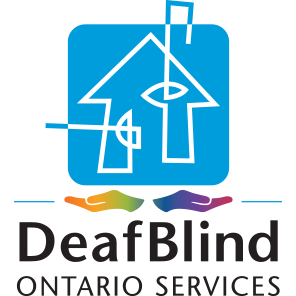We are pleased to highlight the work and achievements of Dr. Walter Wittich, Ph.D., FAAO, CLVT, a pioneer Canadian researcher in support of people with deafblindness.
 “I am not visually and/or hearing impaired, nor am I part of the deafblind community. However, I want to inform people with deafblindness and be informed by them”, said Dr. Walter Wittich.
“I am not visually and/or hearing impaired, nor am I part of the deafblind community. However, I want to inform people with deafblindness and be informed by them”, said Dr. Walter Wittich.
Deafblindness, a combined loss of hearing and vision, impacts access to information, communication, and mobility. Over one percent of Canada’s population or approximately 466,420 people are deafblind.
Dr. Wittich is an Assistant Professor at the School of Optometry at the University of Montreal. Coming from a background in age-related vision loss, he now conducts research in dual sensory loss and deafblindness. His research domains include basic sensory science, as well as medical, psychosocial, and rehabilitation approaches to sensory loss.
After retiring from a 15-year career as a professional ballet dancer, Dr. Wittich went back to school to complete his undergrad degree in psychology. It was in a methodology course that he met Dr. Olga Overbury, a Professor studying age-related vision loss. Their shared sense of humour motivated Dr. Wittich and the two worked closely as she supervised his honours project.
“Following my Masters, I became curious about research as a second career… I decided to complete a PhD in Neuroscience at McGill. My thesis was on peripheral vision loss and brain response to peripheral vision loss. I interviewed several individuals with Usher’s Syndrome, which is characterized by partial or total vision loss and hearing loss that worsens over time. At that point, I felt that I needed to explore hearing loss, so I pursed a Postdoctoral Fellowship in Audiology.”
After working as a part-time research coordinator and researcher for two years, Dr. Wittich was hired at the University of Montreal, where he currently is an Assistant Professor at the School of Optometry.
“My research aims to improve functional ability, social participation, and quality of life for persons with vision and/or hearing loss. In addition, I am interested in how these combined impairments influence the use of assistive devices, the stigma related to assistive technologies, and the interactions among the device user, the rehabilitation provider, and the device itself,” said Dr. Wittich.
Dr. Wittich notes that communication is an important part of the experience in working with individuals with sensory loss. A couple of years ago, he started to learn American Sign Language (ASL), which he describes as similar to learning choreography in ballet.
“I gave a keynote presentation in Winnipeg a few years ago. I signed “nice to meet you” into the palm of a woman with late-onset dual sensory loss. Although I am not a fluent communicator in ASL, it was the first time I was able to introduce myself in this way. It was magical for her as an audience member, too.”
Dr. Wittich’s focus on the rehabilitation of older adults with combined vision and hearing loss has shed light on the contrast of perceptions of sensory loss and the realities.
In Ontario, an estimated 147,736 individuals are deafblind; 22% or 70,080 of Ontario seniors in home care and long-term care reported experiencing vision and hearing loss combined every year for the past three years.
A combined loss of hearing and vision, or the decline of these senses, affects communication and can lead to social isolation. Further, vision or hearing loss increases the risk for dementia in older adults. “There is a lot we can do and learn with respect to dual sensory loss and dementia”, said Dr. Wittich.
For those with sensory loss, aging can pose other challenges. For example, in the case of someone that communicates with sign language, the onset of arthritis can create a barrier. “We must better prepare professionals that work with these individuals… not just intervenors, but other health care providers like nurses and even dentists.”
In early 2017, DeafBlind Ontario Services established a collaborative partnership with Dr. Wittich as a Research Affiliate to capitalize on the unique features of deafblind and age-related dual sensory loss communities, support the strategic aims of DeafBlind Ontario Services, and allow for creative opportunities to build our research capacity and sustainability.
“I am inspired by the resilience of the people I work with; those impacted by sensory loss and those working in the field… I’ve met so many kind people and I feel that we recognize each other in spirit. I am motivated to continue my research and express the needs of people who are unseen and unheard.”
Dr. Wittich has published 87 peer-reviewed publications, primarily about visual impairment, low vision, and dual sensory impairment, bringing much needed visibility to this field nationally and internationally. He is a resident researcher at both the CRIR/Centre de réadaptation Lethbridge-Layton-Mackay du CIUSSS du Centre-Ouest-de-l’Île-de-Montréal and the CRIR/Institut Nazareth et Louis-Braille du CISSS de la Montérégie-Centre.
We are proud that Dr. Wittich is the co-leader of Canadian Consortium for Neurodegeneration in Aging (CCNA) Team 17 – focusing on interventions at the Sensory and Cognitive Interface and implications for Communication and Quality of Life – along with a group of 8 professionals in the field of vision, hearing and cognition from universities across Canada.
At DeafBlind Ontario Services, our commitment to providing a high quality of life for people with deafblindness is ingrained in our values. We are coordinating research into this unique disability, ensuring the evidence is used to enhance services for the people we support and develop partnerships with other community services organizations.



Recent Comments